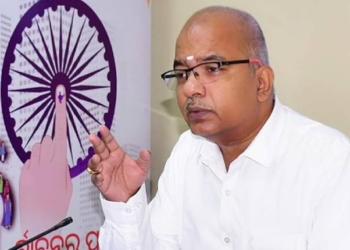Bhubaneswar: Tata Consultancy Services (TCS) has joined hands with the Odisha government to design and roll out Integrated Financial Management System (IFMS) 3.0, the latest upgrade of the state’s financial governance platform.
TCS has been associated with Odisha’s digital finance journey since 2005, starting with the Odisha Treasury Management System, followed by the first and second versions of IFMS. The launch of IFMS 3.0 marks the third generation of this solution, aimed at delivering enhanced transparency, accuracy, and efficiency in state financial operations, the company said in a statement.
As part of the upgrade, TCS will deploy its AI Workbench, an open-source platform that supports artificial intelligence and machine learning applications in model development, monitoring, and retraining. This integration will enable IFMS 3.0 to leverage analytics and AI-driven insights in day-to-day decision-making. Among its features is a multilingual chatbot that can handle FAQs, automate service desk tasks, and assist users with functional queries, making the system more user-friendly.
“IFMS 3.0 combines advanced technology and user-centric design to deliver smarter governance. With real-time financial visibility, enhanced precision, and a future-ready architecture, this platform will empower Odisha to deliver more effective public services to its citizens,” said Girish Ramachandran, President, Growth Markets and Public Services, TCS.
In addition to its core functionalities—covering budgeting, expenditure, revenue, and accounts management—the new platform introduces advanced features for streamlined processes, improved data accuracy, and real-time monitoring. According to Tej Paul Bhatla, Senior Vice President, Public Service, TCS, the system unifies “budgeting, payments, receipts, and accounts into a single source of truth,” with AI-assisted insights and intuitive workflows to accelerate reporting and support evidence-based decision-making.
The Odisha government expects IFMS 3.0 to strengthen financial discipline, boost transparency, and support citizen-centric governance.
















